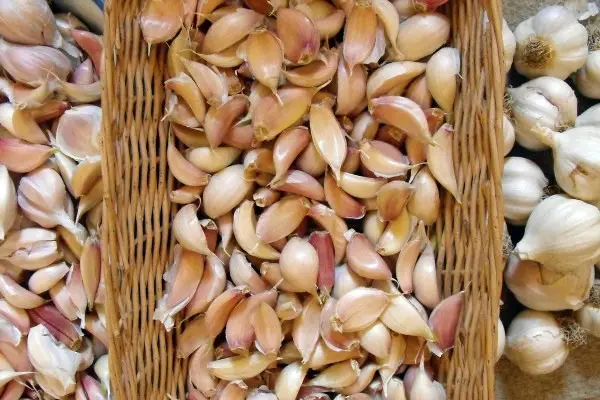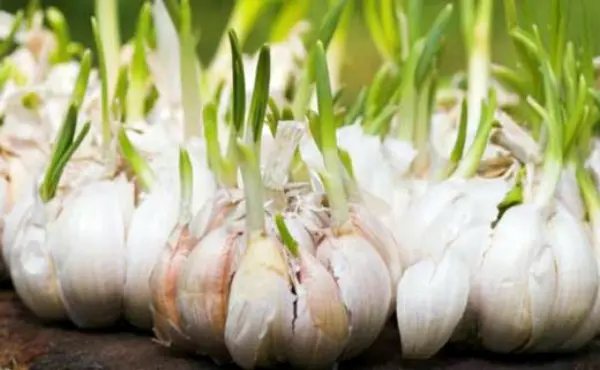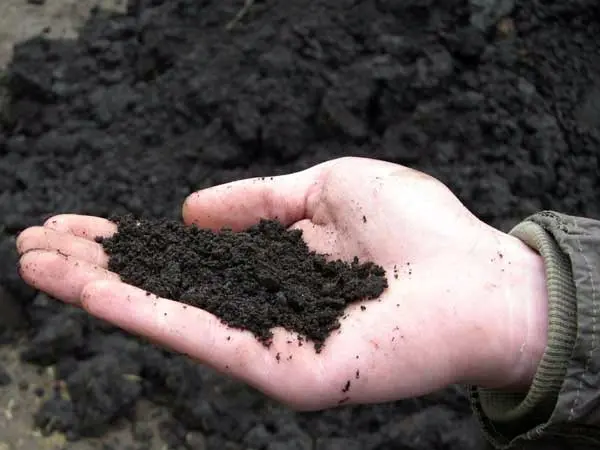Contents
Preparing garlic for planting is a very important process, since the quality of the seed depends on what the crop will be and whether it will be at all. During pre-treatment, disinfection, storage, garlic can both lose its beneficial qualities and gain, depending on what you are doing. We will talk about how to prepare garlic and soil for planting in this article.
Preparing garlic
A reliable fact: how garlic is stored depends on how it will then grow. Cloves or whole bulbs should be properly dried in autumn and sent to a cool, dry place, such as a refrigerator or cellar. If they are damaged by insects, covered with mold or rot, they cannot be used. Even if the plant grows, it will be frail, small and completely unsuitable for further reproduction or consumption.

Preparation of spring garlic
Spring garlic cloves should be dried well in autumn, and then packed in cloth bags, cardboard or wooden boxes. The air temperature during storage should not exceed +7 degrees, and the humidity should tend to zero, since it is in such an environment that garlic continues to produce all the chemical compounds necessary for rapid growth. If you properly process the cloves in the fall, then in the spring you will have first-class planting material.
The largest cloves should be selected, while giving preference to those that are on the outer circle – the best plants grow from them. Carefully inspect each clove so that there are no wormholes, rot, or dents on it. Disinfect in a pink solution of potassium permanganate or ash liquor.
For planting, you can choose the varieties “Degtyarsky”, “Kledor”, “Flavor”, “Messidor”.

Choose a place for planting
Garlic incredibly loves heat, but it does not tolerate dry heat, which harms its leaves. Therefore, when choosing a place for landing, make sure that it is either at least slightly shaded, or well moistened.
Garlic also has a special relationship with water: during the active growing season, it needs quite a lot of moisture, but it cannot “swim” in water – the bulbs immediately begin to rot. Thus, an elevation can be made from the soil so that the water goes slightly lower than the underground part of the plant.
It is important to observe crop rotation, that is, replant the garlic every time, so as not to infect the earth with a fungus and not to lure harmful insects. It is good if early ripe crops grew in the garden before garlic – potatoes, tomatoes or annual plants like gourds, peppers. They saturate the soil with nitrogen and phosphorus, which allows the crop to “feast” during growth. Be that as it may, the preparation of planting material and soil for planting begins in the fall.

Soil preparation
Garlic prefers loamy, organic-rich soil with neutral or low acidity. At the same time, fertilizers should be applied in late autumn, so that they are well transformed over the winter, and in spring the cloves receive ideal soil rich in useful compounds.
For 1 square meter of land, you will need at least 1 bucket of compost or humus, you can use mullein or horse manure. Add 1 tablespoon of double superphosphate and nitrophoska to the compost. You can also add 1 cup of dolomite flour to reduce the acidity of the soil.
The site is dug up on a spade bayonet, then leveled with a garden rake and watered with a solution of copper sulfate. To prepare it, 10 grams of vitriol granules are diluted in 40 liters of water so that 1 liter of solution goes per 1 square meter.
Until spring, the beds are covered with plastic wrap.
Video “Preparing winter garlic for planting”
In this video, the secrets of preparing various types of seed material for planting.









